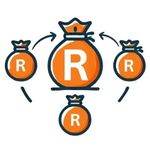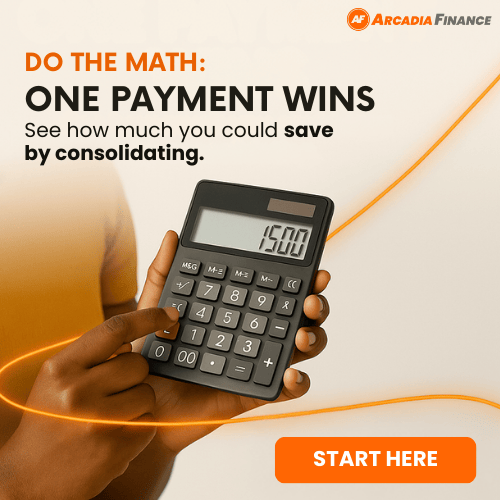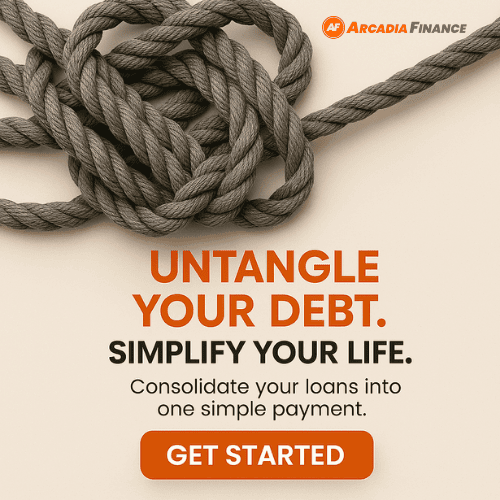
Paying off credit card debt is a common financial goal for many South Africans. With interest rates on credit cards often being higher than other forms of credit, this type of debt can quickly grow if not managed properly. Many people find themselves stuck in a cycle of only paying the minimum amount each month, which barely covers the interest. This leads to the debt lasting much longer and costing far more than expected. If you’re paying off a small balance or tackling a bigger debt, having a clear plan can truly help.
Key Takeaways
- A clear repayment strategy helps manage credit card debt more effectively: Using methods like the snowball or avalanche approach, or options like personal loans or debt consolidation, can help South Africans reduce interest costs and stay consistent with repayments.
- Missing credit card payments can lead to legal action, service restrictions, and lasting credit score damage: Late fees, accumulating interest, debt collection, and court judgements can make the situation worse and affect your ability to borrow or access services in the future.
- Tools like budgeting apps, registered debt counsellors, and credit provider support can make debt repayment easier: Services such as 22seven, debt counselling under the NCR, and communicating with your lender can assist in organising your finances and avoiding further consequences.
About Arcadia Finance
Take Control of Your Finances with Arcadia Finance. Apply once and access offers from 19 top NCR-compliant lenders. No fees, no hassle, just reliable loan options made to fit your budget.
What Is Credit Card Debt?
Credit card debt arises when you use your credit card to make purchases or withdraw cash and do not repay the full amount by the due date. The unpaid balance carries over to the next billing cycle, and interest is charged on it. This interest is typically calculated daily, meaning the longer you take to pay off the balance, the more you owe.
Interest Charges and Compound Interest
Interest on credit cards is usually expressed as an Annual Percentage Rate (APR). However, the actual interest is calculated daily using a daily periodic rate, which is the APR divided by 365. This daily interest is added to your accrued interest balance, and the next day’s interest is calculated on the new total. The total interest accrued is then added to your overall balance at monthend. This process is known as compound interest, where you pay interest on both the principal amount and the accumulated interest.
Minimum Payments
Credit card companies require a minimum payment each month, often a small percentage of your total balance. While making minimum payments keeps your account in good standing, it does little to reduce the principal balance. Consequently, you end up paying more in interest over time, and it takes longer to pay off the debt.
Ready to simplify dozens of credit-card balances into a single monthly payment? Our guide to debt consolidation walks you through when it’s a smart move, how to compare consolidation loans and balance-transfer cards, and the risks to watch for.

Common Causes of Credit Card Debt in South Africa
Several factors contribute to the accumulation of credit card debt among South Africans:
Rising Living Costs
The cost of living in South Africa has been increasing, with higher prices for essentials like food, fuel, and utilities. Many individuals turn to credit cards to cover these everyday expenses when their income doesn’t keep up with inflation.
Unplanned Expenses
Unexpected costs, such as medical emergencies, car repairs, or urgent home maintenance, can lead to increased credit card usage. Without sufficient savings, people rely on credit cards to manage these unforeseen expenses.
Overreliance on Revolving Credit
Some individuals use credit cards for regular spending, treating them as an extension of their income. This habit can lead to a cycle of debt, especially if the balance isn’t paid in full each month. Over time, the accumulating interest makes it harder to clear the debt.
How to Pay Off Credit Card Debt
Know Exactly What You Owe
Start by listing all your credit cards, along with the amounts owed, interest rates, and minimum monthly payments. You can find this information on your latest statements or through online banking. Knowing these details helps you understand how much you owe overall and how interest is being charged.
Having a clear view of your debts makes it easier to plan your repayments. It also allows you to identify which cards are costing you the most, so you can decide where to focus your efforts first.
Set a Realistic Repayment Goal
After reviewing your debts, the next step is to work out how much you can pay each month. Look at your monthly income and deduct all necessary living expenses like rent, food, and transport. Whatever is left can be used for repayments.
Based on this figure, set a goal for when you’d like the debt to be cleared. For example, if you owe R20 000 and can afford R2 000 per month, it might take 10 months to pay it off, excluding interest. Use online calculators to estimate how long repayment will take with interest included. Setting a timeframe helps you stay focused and track your progress.
A personal loan might offer a lower rate than your cards, but it’s not right for everyone. Our guide on when to use a personal loan to pay off credit-card debt helps you size up fees, terms and credit impacts so you decide if swapping high-rate cards for a fixed-rate loan is the clever play.

Choosing a Repayment Strategy

Snowball Method
The snowball method is a widely used approach to reducing debt by focusing on balances from the smallest to the largest. You begin by paying off the debt with the lowest outstanding amount. Once this is settled, the money that was allocated to that account is added to the payment for the next smallest debt. This continues until all debts are cleared.
To apply this method, you first create a full list of all your debts, ranking them by the amount owed, from the smallest to the largest. The interest rate is not considered at this stage. While maintaining minimum payments on all other accounts, you direct any extra funds towards the smallest debt. After that balance is cleared, you move on to the next, continuing the process until each debt is paid in full.
Paying off the smaller amounts first can make debt management feel more achievable, especially when you see quick results. It helps you build positive momentum and develop a habit of consistent repayment.

Avalanche Method
The avalanche method works differently from the snowball method. In this case, you focus on the debt with the highest interest rate first, regardless of the balance. You continue to make minimum payments on your other debts, while putting any extra funds towards the one that is costing you the most in interest.
By prioritising the most expensive debt, you reduce the total amount of interest paid over time. Once the highest-interest debt is cleared, the payment is then shifted to the next highest, and so on, until all balances are settled. This approach is usually the most cost-effective in the long term, although it may take longer to see your first debt paid off compared to the snowball method.

Personal Loans
Using a personal loan to clear your credit card balances is another repayment option worth considering. This involves applying for a lower-interest personal loan and using the funds to settle your credit card debts in full. By doing this, you replace several credit card repayments with one monthly instalment on the personal loan.
This approach can simplify your finances and reduce the total amount of interest you pay. However, personal loans can also affect your credit record. To avoid damaging your credit score, you must make repayments on time. Before applying, it’s advisable to review the loan’s interest rate, repayment term, and any additional fees. Understanding the full cost of the loan helps you avoid unexpected charges.

Debt Consolidation
Debt consolidation involves combining multiple debts into a single loan with a lower interest rate. If you are managing several credit cards or loans with different repayment dates, banks, and interest rates, this method can help you stay more organised and potentially reduce your overall repayment cost.
By consolidating your debt, you simplify your monthly obligations and may be able to pay off what you owe more quickly. This can ease financial pressure and reduce the risk of missing payments, provided you continue to stick to the agreed repayment plan.

Consequences Of Not Paying Credit Card Debt
Failing to make credit card payments can lead to a series of escalating problems. It usually starts with small penalties such as late fees and rising interest, but if ignored, this can quickly progress to legal steps and possible asset seizure.
Late Fees And Interest Accumulation
When repayments are missed, banks apply penalty charges and continue to add interest on the unpaid balance. These charges grow over time and increase the total amount owed. The longer you delay, the more the debt builds. This makes it increasingly difficult to recover financially.
Banks impose a fee every time a payment is late, which is then added to the outstanding balance. Interest also continues to accumulate daily on the full balance. This ongoing increase creates a cycle where the debt becomes harder to manage each month.
Debt Collection Efforts
If payments remain unpaid, the bank will try to recover the money through various means. In South Africa, this typically begins with messages, phone calls, and formal notices. If you do not respond or make arrangements, the account may be passed on to a registered debt collection agency.
Debt collectors are required to follow the rules set by the National Credit Act. They are permitted to contact you, and over time may gather the necessary documentation to begin legal proceedings if you still fail to act.
Legal Action
If debt recovery through reminders is unsuccessful, the matter can move to legal action. The process usually begins with the bank or agency issuing a formal S129 notice, giving you an opportunity to resolve the matter before further legal steps are taken.
While legal action is a serious matter, you cannot be jailed in South Africa simply for failing to repay a credit card or personal loan. However, the court can issue a judgement that allows creditors to recover funds by attaching your salary, seizing funds from your accounts, or taking certain assets.
Bank Account And Service Restrictions
Outstanding debts can lead to restrictions on your banking services. Your credit card may be frozen, overdraft facilities withdrawn, or other financial services limited. In some cases, the bank may use money from other accounts you hold with them to cover the unpaid amount.
Using our comparison tool makes finding a loan quick and easy. And there’s plenty of information here to help you find the loan that’s right for you.
This process, known as set-off, allows the bank to deduct money from linked accounts, such as a savings account, to repay the debt. Set-off is only used if it is stated clearly in the loan agreement you signed when taking out the credit.
Credit Score Impact
Missing payments negatively affects your credit score. Credit reporting agencies such as TransUnion and Experian record late or missed payments, and these entries remain on your credit report for several years.
A low credit score makes it more difficult to qualify for loans or credit in the future. If you are approved, you may be charged higher interest rates. A poor credit record may also affect other areas of life, such as renting property or applying for certain jobs, especially where financial responsibility is a factor.
Judgements issued through the courts are also recorded on your credit profile. These listings stay visible for several years and can have lasting consequences. Maintaining a clean credit history is the best way to avoid these long-term issues.

Tools and Services That Can Help
Budgeting Tools
Managing your finances effectively is crucial when aiming to pay off credit card debt. Several budgeting tools are available to South Africans to assist in tracking expenses and setting financial goals.
- Vault22 is a free budgeting app developed by Old Mutual, tailored specifically for South Africans. It allows users to link their bank accounts, credit cards, and other financial products to view all transactions in one place. The app automatically categorises spending, helping users understand their financial habits and create realistic budgets.
- Goodbudget employs the envelope budgeting method, enabling users to allocate funds for specific spending categories. This approach promotes disciplined spending and ensures that money is set aside for essential expenses.
- Spendee is another user-friendly app that helps track budgets, spending habits, and cash flow. Available on Android, iOS, and the web, it offers detailed breakdowns of expenses, aiding users in making informed financial decisions.
Utilising these tools can provide clarity on your financial situation, making it easier to identify areas where you can cut back and allocate more funds towards debt repayment.
Debt Counselling Services
If you’re struggling to manage your debt, seeking assistance from a registered debt counsellor can be beneficial. In South Africa, debt counsellors must be registered with the National Credit Regulator (NCR) to legally offer their services. These professionals assess your financial situation, negotiate with creditors on your behalf, and develop a structured repayment plan tailored to your circumstances.
To verify a debt counsellor’s registration, you can visit the NCR’s official website or contact them directly. Ensuring that your counsellor is registered protects you from potential scams and ensures that you’re receiving legitimate assistance.
The Debt Counsellors Association of South Africa (DCASA) also provides a directory of registered and reputable debt counsellors. Consulting this resource can help you find trustworthy professionals in your area.
Engaging with a debt counsellor can provide relief from creditor pressure, prevent legal action, and set you on a path towards financial stability.
Speaking to Your Credit Provider
Open communication with your credit provider can be a proactive step in managing your debt. If you’re facing financial difficulties, reaching out to discuss your situation may lead to more manageable repayment terms.
Credit providers may offer options such as reduced interest rates, extended payment periods, or temporary payment holidays. These adjustments can alleviate immediate financial strain and provide breathing room as you work towards settling your debt.
It’s advisable to approach your credit provider before missing payments, as this demonstrates responsibility and a willingness to address the issue. Document all communications and agreements to ensure clarity and accountability.
Maintain transparency and seek assistance when needed, to navigate financial challenges more effectively and work towards becoming debt-free.
Conclusion
Paying off credit card debt in South Africa takes planning, discipline, and the right support. If you’re using the snowball or avalanche method, or thinking about personal loans or debt consolidation, the key is to take action early and stay consistent. Ignoring debt can lead to serious financial consequences, including legal action and long-term credit score damage. However, with budgeting tools, debt counselling services, and open communication with credit providers, it is possible to regain control and work towards a more stable financial future.
Frequently Asked Questions
No, you cannot be sent to jail for failing to repay credit card debt. However, creditors can take legal action and apply for a court order to recover the money through salary attachment or asset seizure.
The snowball method focuses on paying off the smallest debt first to build motivation, while the avalanche method targets the debt with the highest interest rate to save money over time.
Yes, if you’re struggling to manage multiple debts, debt counselling from a National Credit Regulator (NCR)-registered counsellor can help you develop a structured repayment plan and provide legal protection from creditors.
Missed or late payments are recorded by credit bureaus and lower your credit score. This can make it harder to get future credit and may result in higher interest rates or difficulty with things like rental applications.
Yes, using a lower-interest personal loan to pay off high-interest credit card debt can simplify repayments and reduce overall costs, as long as you stick to the loan terms and make payments on time.
Fast, uncomplicated, and trustworthy loan comparisons
At Arcadia Finance, you can compare loan offers from multiple lenders with no obligation and free of charge. Get a clear overview of your options and choose the best deal for you.
Fill out our form today to easily compare interest rates from 19 banks and find the right loan for you.



